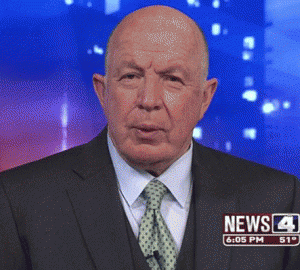Daylight Saving Time is the greatest continuing fraud ever perpetuated on American people. And this weekend, the effects of this cruel monster will rear its ugly head again. On Sunday morning, Americans across the country will have to set their clocks back one hour, and next week, the sun will begin its ambling lurch to eventually settling at 4:30 in the afternoon.
Technically-speaking, this sleep cycle-wrecking practice of setting our clocks back is because we will be going back to Standard Time after our flirty summer with DST. And the unsettling shift back to these hours, and the hour "we gain" is the back-end of the time-bargain we have to pay for setting our clocks forward in March to "maximize daylight" — a phrase probably better suited to organisms that rely on photosynthesis — during the spring and summer hours.
Why we try and "maximize daylight" like we're plants is actually an archaic practice first thought up in the late 1700s and often attributed to Benjamin Franklin. As some elementary school teacher may have explained to you, this was a practice to accommodate agricultural workers and farmers (wrong, and we'll get to this in a minute) or lower the nation's electricity usage.
A lot of that is prime b.s. There is actually no benefit or rhyme or reason we have to endure this weekend's time shift and no reason we should even be playing with the idea of losing and gaining hours. Here's why:
The Energy Savings Are Minimal
A large push for DST has always been the idea that this time warp saved money and helped conserve energy. In the 1970s the energy crisis helped further this notion along. This is all a myth — the energy saving are tiny. First off, did you notice any change in your energy bills between 2006-2008? I know that recalling electricity bills is asking a lot, but the reason I ask is that we actually extended DST by a month in 2007. The thought was that a month of DST would bring more savings.
That was wrong. The great energy-sucking state of California actually studied the impact of that extension and found it wanting. "Formally, weather- and lighting-corrected savings from DST were estimated at 0.18%," reported the California Energy Commission.
There was also another study on the state of Indiana, a state that went full DST in 2006. A team from Yale studied what happened post-DST, and found that the average Indianan was hit in the wallet by DST. National Geographic reported:
In their 2008 National Bureau of Economic Research study, the team found that lighting demand dropped, but the warmer hour of extra daylight tacked onto each evening led to more air-conditioning use, which canceled out the gains from reduced lighting and then some: Hoosiers paid higher electric bills than before DST, the study showed.
DST Is Bad For Your Health
SAD, a.k.a. seasonal affective disorder, is when people get bummed out when the seasons shift. Sunlight plays a role into that, and you'd think that DST would be something everyone would be looking forward to. Wrong. In order to get more daylight during the day, DST short-changes the early-morning sun hours. Those hours are important for those affected by SAD. And it's also very important for your sleep patterns.
"Daylight savings time is anti-physiologic, and it’s a little deleterious, at least for several days," Dr. Nicholas Rummo, director of the Center for Sleep Medicine at Northern Westchester Hospital told Health.com, and added, "light earlier in the day is more helpful for them."
Research has also shown that DST, and shifts and the rupturing of sleep patterns is also linked to myocardial infarctions (a.k.a. heart-attacks), car accidents, and medical equipment malfunctions.
Time Shifts Are Bad For Your Productivity
American exceptionalism is a phrase we've heard a lot recently, and it's usually prefixed by words like "dwindling" or "losing faith in...". If we want to continue this path, then we might as well have DST and shifting time patterns every few months. The weird shift in time messes with our sleep patterns and our bodies, and our work.
"We're encountering data of an increase in extra auto and workplace accidents on Monday or perhaps even carrying through the first week of the Spring time shift," Dr. James Wyatt, at Rush University Medical Center told ABC News in 2012. National Geographic spoke with Till Roenneberg, a chronobiologist, and he explained why:
Light doesn't do the same things to the body in the morning and the evening. More light in the morning would advance the body clock, and that would be good. But more light in the evening would even further delay the body clock.
DST Is Not Financially Responsible
Think about what you could do with $147 million. That's how much the Air Transport Association estimated the 2007, one-month shift cost the airline industry because time schedules with the world (a lot of which does not believe in DST) were messed up.
DST Is Not Helping Any Farmers
Oh right, we almost forgot about farmers. I remember my second grade teacher told skinny, frail, 7-year-old me, "We do this [time shift] for the farmers." I didn't know any farmers, but I remember feeling noble and helpful. I did not know I was being lied to.
"That's the complete inverse of what's true," Tufts University professor Michael Downing, told National Geographic. "The farmers were the only organized lobby against daylight saving in the history of the country." The reason, Downing explains, is that DST left them with less sunlight to get crops to market.
DST affects dairy farmers the most, since cows' bodies and the milk they're tasked with producing are affected by the time changes.
You Don't Even Like DST
"God, I love getting up an hour earlier," said no one ever. "Me too. I can't wait to have my schedule messed up in the fall," no one replied.
A 2011 Rasmussen poll (for what it's worth, Rasmussen can be a bit skewed when it comes to conservative politicians but seems to have no known bias against time zones) found that 47 percent (ha, Romney, ha) of Americans said DST was not worth the hassle.
So how do we fix all of this? Over at Quartz, there's an idea to just have two timezones. But let's be clear here. The real evil here is change. No one really minds if 4:00 is 4:00. They (and their possible heart attacks) mind if for some reason or another that 4:00 is now 5:00 and will be 3:00 in a few months. And it's time to stop this insanity.







































